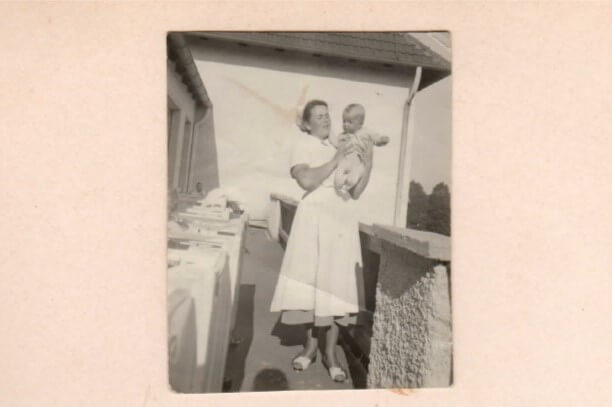Marie Šupíková: Living for remembrance
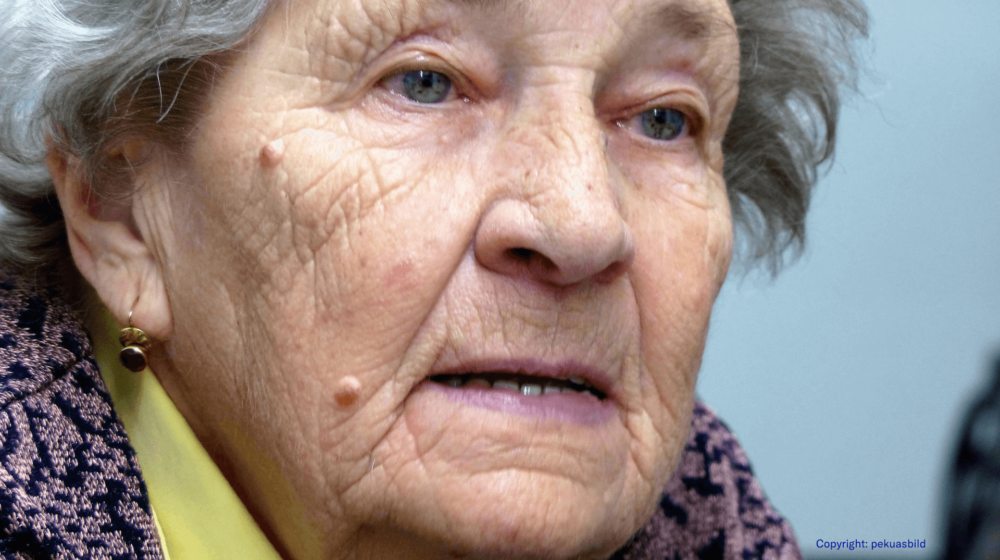
When Marie Šupíková was ten years old, the National Socialists destroyed her home, the entire village of Lidice and murdered nearly all of its inhabitants. Only nine children survived. They were placed with German families to be forcibly Germanized. Marie was one of these nine children. She died in March 2021 at the age of 88.
“I wanted to go home.” This is how Marie Šupíková, born Doležalová, explained to the journalist Dorothee Schmitz-Köster why she returned to her rebuilt hometown years after the Lidice massacre. Dorothee Schmitz-Köster met Marie in 2012 to learn about the extent to which the SS organization known as Lebensborn was involved in the abduction of these Czech children. We talked with her about her impressive encounter.
What was your impression of Marie Šupíková?
My impression was of an 80-year-old woman who was so lively, chatty and just so genuine! Not like someone who had already told the same story 100 or 200 times. She was fully engaged and animated. And she said something that stuck with me: “When I speak, then I see it.” Meaning that she experiences it again and still grapples with what she experienced.
How did the Lidice massacre come about and what were its consequences for Marie?
She told me the story of the tragedy of the village of Lidice from start to finish. After the assassination attempt on Reinhard Heydrich, Deputy Protector of Bohemia and Moravia and head of the Reich Security Main Office, who subsequently died from the attack, Nazi officials resolved to take retaliatory measures and set their sights on the village of Lidice. One of the assassins supposedly spent a night there, though this is demonstrably untrue.
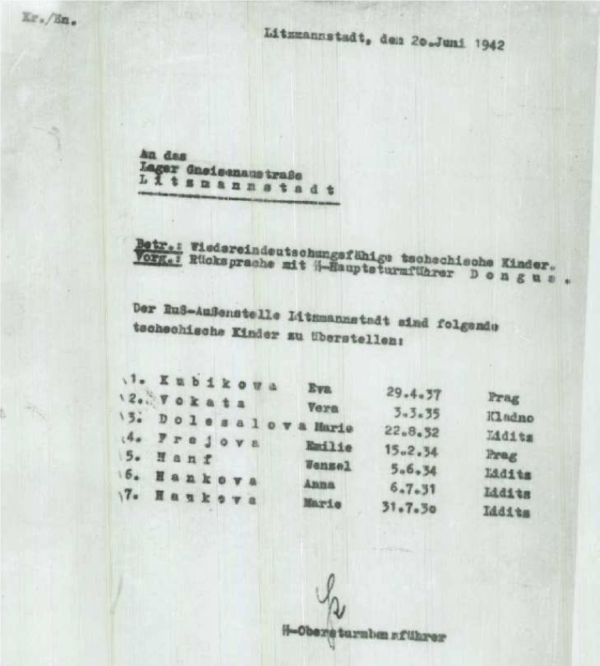
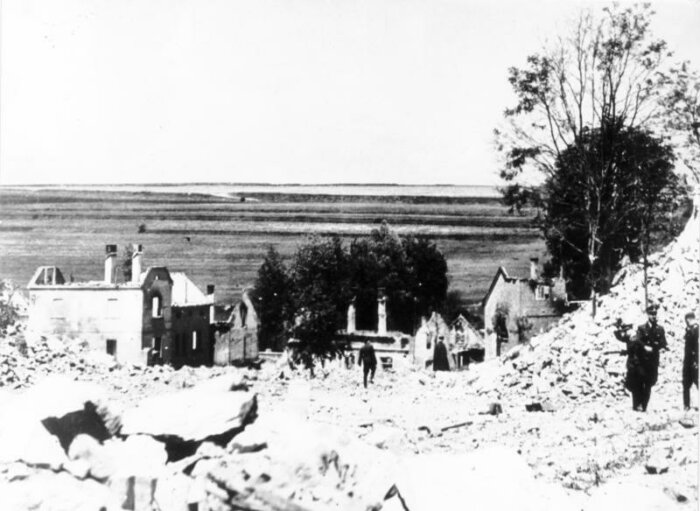
They shot all of the men and deported the women to the Ravensbrück concentration camp. The 89 children from the village were selected by appearance, and only nine of them survived.
The Nazis completely razed the village on June 10, 1942. They shot all of the men and deported the women to the Ravensbrück concentration camp. The 89 children from the village were selected by appearance, and only nine of them survived. In a children’s home near Poznan, Marie and the other children were “re-educated,” they were “Germanized.” Speaking Czech was forbidden and harshly punished. Marie was given a German name during this period and was passed off as an orphan. After a year, she was placed with a German family who named her Ingeborg Schiller.
»In a children’s home near Poznan, Marie and the other children were ›re-educated,‹ they were ›Germanized.‹«
Dorothee Schmitz-Köster, Journalist
What happened to her then?
She lived with this family for three years, and what happened was exactly what the National Socialists wanted: she entirely forgot her own language, Czech! But she always knew that she was Marie! She was found in October 1946, and she returned and joined her mother, who had survived Ravensbrück but was unfortunately seriously ill. They were only reunited for four months before her mother died of tuberculosis. Marie had thus lost her closest family, because her father and her brother had been shot in Lidice. She grew up with her aunt in Kladno. At the age of 15, Marie testified as one of three witnesses to the massacre in Lidice at the Nuremberg Trial of the Race and Settlement Main Office.
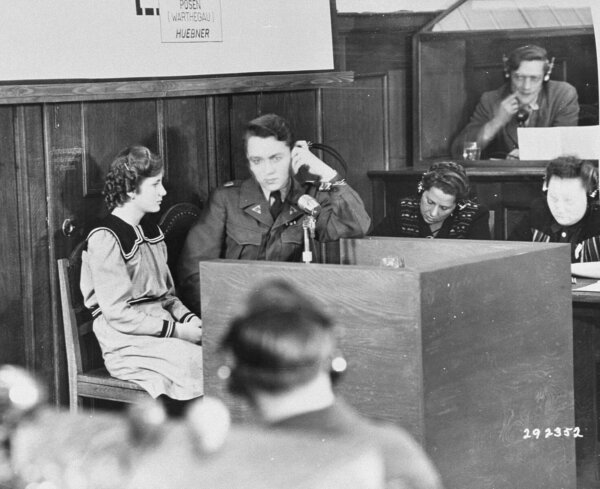
Marie as a witness at the Nuremberg Trials. Copyright: United States Holocaust Memorial Museum, courtesy of Hedwig Wachenheimer Epstein
Why did she go back to Lidice later?
She said, “We wanted to go home.” The village was rebuilt in a different location in 1947. Marie returned there in 1955 with her four-month-old daughter and her husband. She is a strong person and apparently wanted to confront what had happened. And she absolutely wanted the memory to be kept alive. And she didn’t just mean the act of remembering, but also the strength, the energy, the will to survive.
How will you remember Marie Šupíková?
I am really very happy to have met her, this impressive woman, so full of energy, life and strength. It was a wonderful experience to see her, listen to her and be able to ask her questions.

